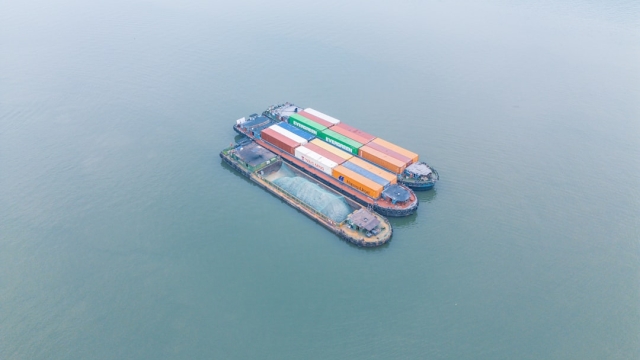In the world of international trade, the transportation of goods across oceans is a complex process fraught with potential risks. Businesses engaged in shipping must navigate various challenges, including theft, damage, and delays. This is where ocean cargo insurance comes into play, providing a safety net that protects cargo owners from financial losses. In this ultimate guide to ocean cargo insurance, we will explore essential aspects of this coverage, including its importance, types of policies, benefits, and practical advice for navigating the claims process.
Understanding Ocean Cargo Insurance: Definition and Importance
Ocean cargo insurance is a specialized form of insurance designed to protect goods transported over water. This coverage is vital for businesses involved in international shipping, as it mitigates the financial impact of unforeseen incidents that can occur during transit. From natural disasters to human error, the risks of transporting goods by sea are significant. Without adequate coverage, businesses may face severe financial repercussions in the event of loss or damage to their cargo.
Key Takeaway: Ocean cargo insurance is crucial for safeguarding the financial interests of businesses engaged in the international shipping of goods.
Types of Coverage: What You Need to Know
There are several types of ocean cargo insurance policies, each catering to different needs. The main types include:
- All-Risk Coverage: This policy covers a wide range of potential issues, including theft, damage, and loss, unless specifically excluded.
- Named Perils Coverage: Coverage is limited to specific risks that are explicitly listed in the policy, such as fire, sinking, or collision.
- General Average Coverage: This applies when cargo is sacrificed to save the ship and its remaining cargo, spreading the loss among all parties.
Understanding these options will help businesses choose the right coverage for their needs.
Key Takeaway: Familiarize yourself with the different types of ocean cargo insurance to select the best policy for your shipping activities.
Benefits of Ocean Cargo Insurance for Businesses
Investing in ocean cargo insurance offers numerous benefits. It protects against financial loss, provides peace of mind, and enhances credibility with clients and partners. Additionally, having insurance can facilitate smoother transactions and negotiations, as stakeholders often prefer dealing with insured parties.
Key Takeaway: Ocean cargo insurance not only safeguards financial interests but also bolsters business reputation and operational efficiency.
The Claims Process: Step-by-Step Guide
Filing a claim for ocean cargo insurance can be intricate. Here’s a simplified step-by-step guide:
- Notify Your Insurer: As soon as damage or loss is identified, inform your insurance provider.
- Document the Incident: Gather evidence, including photographs and shipping documents, to support your claim.
- Complete the Claim Form: Fill out the necessary paperwork provided by your insurer.
- Submit the Claim: Send the claim form and supporting documents to your insurer for review.
- Follow Up: Keep in regular contact with your insurer to track the progress of your claim.
Key Takeaway: A thorough understanding of the claims process can streamline your experience and help ensure a timely resolution.
Best Practices for Choosing the Right Policy
When selecting an ocean cargo insurance policy, consider the following best practices:
- Assess Your Needs: Evaluate the type of goods you are shipping and the risks involved.
- Compare Policies: Review multiple offers to find the best coverage and pricing.
- Consult with Experts: Seek advice from insurance brokers or industry professionals who can provide valuable insights.
Key Takeaway: A careful approach to choosing an ocean cargo insurance policy can lead to better coverage tailored to your specific needs.
Common Exclusions and Limitations in Ocean Cargo Insurance
It is essential to understand that not all incidents are covered under ocean cargo insurance. Common exclusions may include:
- Losses due to inadequate packaging or handling
- Damage resulting from inherent vice of the goods
- Losses caused by war, strikes, or civil commotion
Being aware of these limitations helps businesses manage expectations and prepare for potential risks.
Key Takeaway: Understanding exclusions in ocean cargo insurance is vital for effective risk management.
How to File a Claim Successfully
To enhance the likelihood of a successful claim, ensure that all documentation is accurate and complete. Provide detailed descriptions of the incident and maintain communication with your insurer throughout the process. Following these steps can significantly improve your chances of receiving compensation.
Key Takeaway: Thorough documentation and proactive communication are key to successful claims in ocean cargo insurance.
Frequently Asked Questions about Ocean Cargo Insurance
What does ocean cargo insurance cover? It typically covers loss or damage to goods while in transit over water, depending on the policy type.How much coverage do I need? This depends on the value of the goods being shipped and the specific risks involved.Can I insure goods in transit by other means? Yes, however, ocean cargo insurance specifically addresses risks associated with maritime transport.
In conclusion, understanding the intricacies of ocean cargo insurance is essential for businesses involved in shipping goods internationally. By familiarizing yourself with the types of coverage, benefits, claims process, and best practices, you can better protect your investments. To delve deeper into this topic, consider exploring the ultimate guide to ocean cargo insurance for a comprehensive overview that will further enhance your knowledge and preparedness. Assess your insurance needs today to ensure the safety of your cargo in transit.

